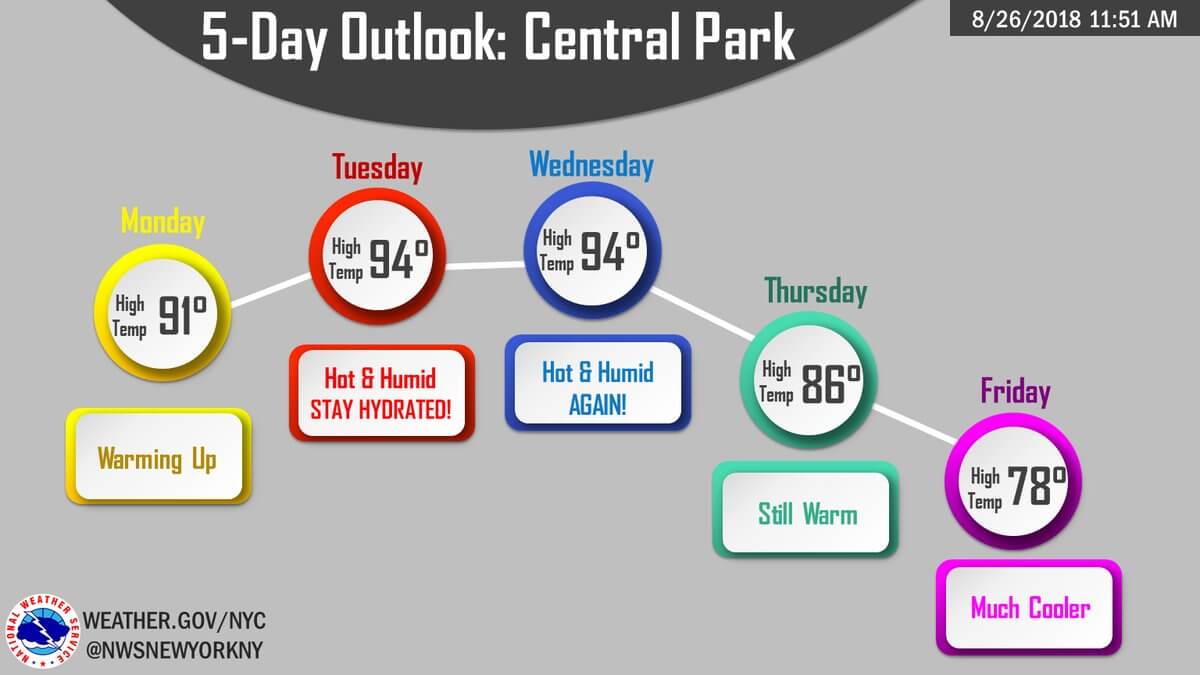Northeastern states were given heat advisory warnings as temperatures rose during the last week of August.
Residents of thirteen states from Maine to Virginia were given heat warnings or advisories on August 29 as temperatures went up past 80 degrees (F).
Around 70 million people were placed under the heat advisories. According to The Weather Channel, the advisory was posted for a broad area covering the Mid-Atlantic States, New York and New England.
According to the National Weather Service, parts of New York touched triple digits for their heat index.
A Heat Advisory is in effect tomorrow and Wednesday. A combination of heat and humidity will make it feel in the lower 100s in spots during the afternoon hours. Stay hydrated and keep cool! #BeatTheHeat pic.twitter.com/gRiEUnhjQi
— NWS New York NY (@NWSNewYorkNY) August 27, 2018
The heat was also felt farther west in parts of Missouri and Michigan, where advisories were also issued.
The St. Louis metro area was put on “excessive heat warning”, the highest level of heat advisory issued by the weather service. During an excessive heat warning, the high temperature is expected to rise to dangerous levels and possibly bring heat-related illnesses.
The heat wave coincided with the start of the new school year in some states. Excessive heat watches were also issued to parts of the Connecticut River Valley. Schools in the Milford and West Haven school districts were closed early due to the soaring temperatures.
Students in the school district in Philadelphia were also dismissed early for a couple of days and after-school activities were canceled

Relief came in small patches as the week ended, but The Weather Channel says the cooldown may not last for long and another bout of high temperatures could make a comeback during the first week of September.
High temperatures can be dangerous and lead to disorientation, seizures and unconsciousness. In extreme cases, it can cause heat stroke and even death.
Vulnerable individuals include the elderly and those who are doing strenuous activity while outdoors.
Staying cool in the shade and drinking plenty of water to hydrate can help keep your body temperature down and ameliorate the negative effects of high temperature on the body.
For more information on heat-related first aid procedures and how to prevent heat stroke, read this article from American Survival Guide.


